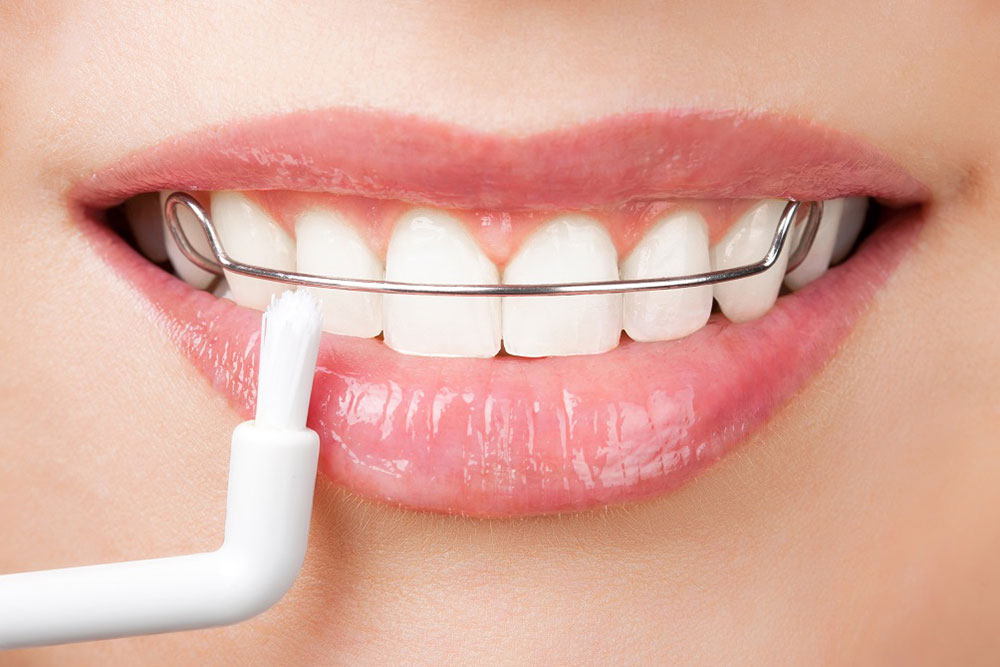Why You Need To Look Out For Dental Abscesses
 A tooth abscess is an unpleasant dental condition that can interfere with daily habits like eating and chewing, so it's important to be wary of them if you want to protect your smile.
A tooth abscess is an unpleasant dental condition that can interfere with daily habits like eating and chewing, so it's important to be wary of them if you want to protect your smile.
Key takeaways:
- Dental abscesses are caused by untreated cavities, tooth decay, and chipped or broken teeth that eventually lead to bacterial infection
- Red and swollen gums, a mild or severe toothache, fever, and a strange taste in your mouth are common symptoms caused by a dental abscess
- An abscessed tooth is often treated via root canal therapy, and in severe cases the infected tooth may need to be removed
As it happens with other dental conditions, the most important thing when it comes to tooth abscesses is preventing their appearance and being on the lookout for symptoms. Speak to your dentist if you notice anything unusual!
Read the full story here: http://yourdentalhealthresource.com/what-is-an-abscessed-tooth-and-how-is-it-treated/

 Dental implants are an excellent way to replace missing teeth so you can still have that beautiful smile. It's important to follow your dentist's instructions after having an implant in order to keep the area clean and to allow the site to heal.
Dental implants are an excellent way to replace missing teeth so you can still have that beautiful smile. It's important to follow your dentist's instructions after having an implant in order to keep the area clean and to allow the site to heal. Getting braces is the best way of repairing crooked teeth, treating crowded teeth and maintaining a natural smile that will last a lifetime. While it is normal for teeth to shift a bit as they settle in position, excess shifting could mean more treatment is needed.
Getting braces is the best way of repairing crooked teeth, treating crowded teeth and maintaining a natural smile that will last a lifetime. While it is normal for teeth to shift a bit as they settle in position, excess shifting could mean more treatment is needed. A beautiful smile begins with healthy teeth and gums but for some people this can be difficult to maintain. Around 10-20% of adults in America have a significant fear of dental treatment. Researchers have been investigating the reasons around this fear and are looking at ways to improve dental care.
A beautiful smile begins with healthy teeth and gums but for some people this can be difficult to maintain. Around 10-20% of adults in America have a significant fear of dental treatment. Researchers have been investigating the reasons around this fear and are looking at ways to improve dental care. In order to maintain healthy teeth and a white smile, regular trips to the dentist may not always be enough. Those who sleep for only a few hours each night are at a much higher risk of developing gingivitis (gum disease) over time. It is therefore crucial to understand the important role that sleep plays in regards to oral hygiene. Let us take a quick look at what researchers have uncovered and how these findings can be applied to our daily lives.
In order to maintain healthy teeth and a white smile, regular trips to the dentist may not always be enough. Those who sleep for only a few hours each night are at a much higher risk of developing gingivitis (gum disease) over time. It is therefore crucial to understand the important role that sleep plays in regards to oral hygiene. Let us take a quick look at what researchers have uncovered and how these findings can be applied to our daily lives. Nail biting is a cause of poor dental and general health. Reasons, why people bite on their nails include stress, anxiety and not using the nail cutter. Unfortunately, victims of this bad habit are unaware of its harmful effects. Here is how nail biting is damaging your teeth and smile!
Nail biting is a cause of poor dental and general health. Reasons, why people bite on their nails include stress, anxiety and not using the nail cutter. Unfortunately, victims of this bad habit are unaware of its harmful effects. Here is how nail biting is damaging your teeth and smile! Frequent brushing is one of the secrets to a winning smile, but the benefits of frequent brushing go beyond the aesthetic. Below we give you three reasons why you mustn't overlook your dental hygiene.
Frequent brushing is one of the secrets to a winning smile, but the benefits of frequent brushing go beyond the aesthetic. Below we give you three reasons why you mustn't overlook your dental hygiene. When most of us envision a bright smile and healthy teeth, regular brushing and flossing come to mind. Although a dentist will obviously recommend such daily practices, a lesser-known fact is that a condition known as acid reflux can severely damage tooth enamel if left unchecked. Common symptoms include heartburn and the occasional upset stomach. However, this acid can also impact the teeth if it travels to the mouth.
When most of us envision a bright smile and healthy teeth, regular brushing and flossing come to mind. Although a dentist will obviously recommend such daily practices, a lesser-known fact is that a condition known as acid reflux can severely damage tooth enamel if left unchecked. Common symptoms include heartburn and the occasional upset stomach. However, this acid can also impact the teeth if it travels to the mouth. Gum disease, also known as gingivitis, is caused by a buildup of bacteria, which forms within a substance known as plaque. Over time this hardens to become tartar, which then begins to cause damage to teeth, gums and surrounding tissues. There are certain factors which can increase the risk of developing gum disease, such as: smoking, a poor or unbalanced diet, failure to maintain good oral hygiene, certain illnesses and stress. The following treatments may help to reverse the damage caused by gum disease, in order to restore a healthy smile:
Gum disease, also known as gingivitis, is caused by a buildup of bacteria, which forms within a substance known as plaque. Over time this hardens to become tartar, which then begins to cause damage to teeth, gums and surrounding tissues. There are certain factors which can increase the risk of developing gum disease, such as: smoking, a poor or unbalanced diet, failure to maintain good oral hygiene, certain illnesses and stress. The following treatments may help to reverse the damage caused by gum disease, in order to restore a healthy smile: It is well known that the risk of developing cavities and tooth decay can be minimised with a thorough oral hygiene routine of brushing, flossing and regular visits to the dentist. However, despite following these guidelines, there are certain factors which can increase the likelihood of suffering from these problems:
It is well known that the risk of developing cavities and tooth decay can be minimised with a thorough oral hygiene routine of brushing, flossing and regular visits to the dentist. However, despite following these guidelines, there are certain factors which can increase the likelihood of suffering from these problems:


